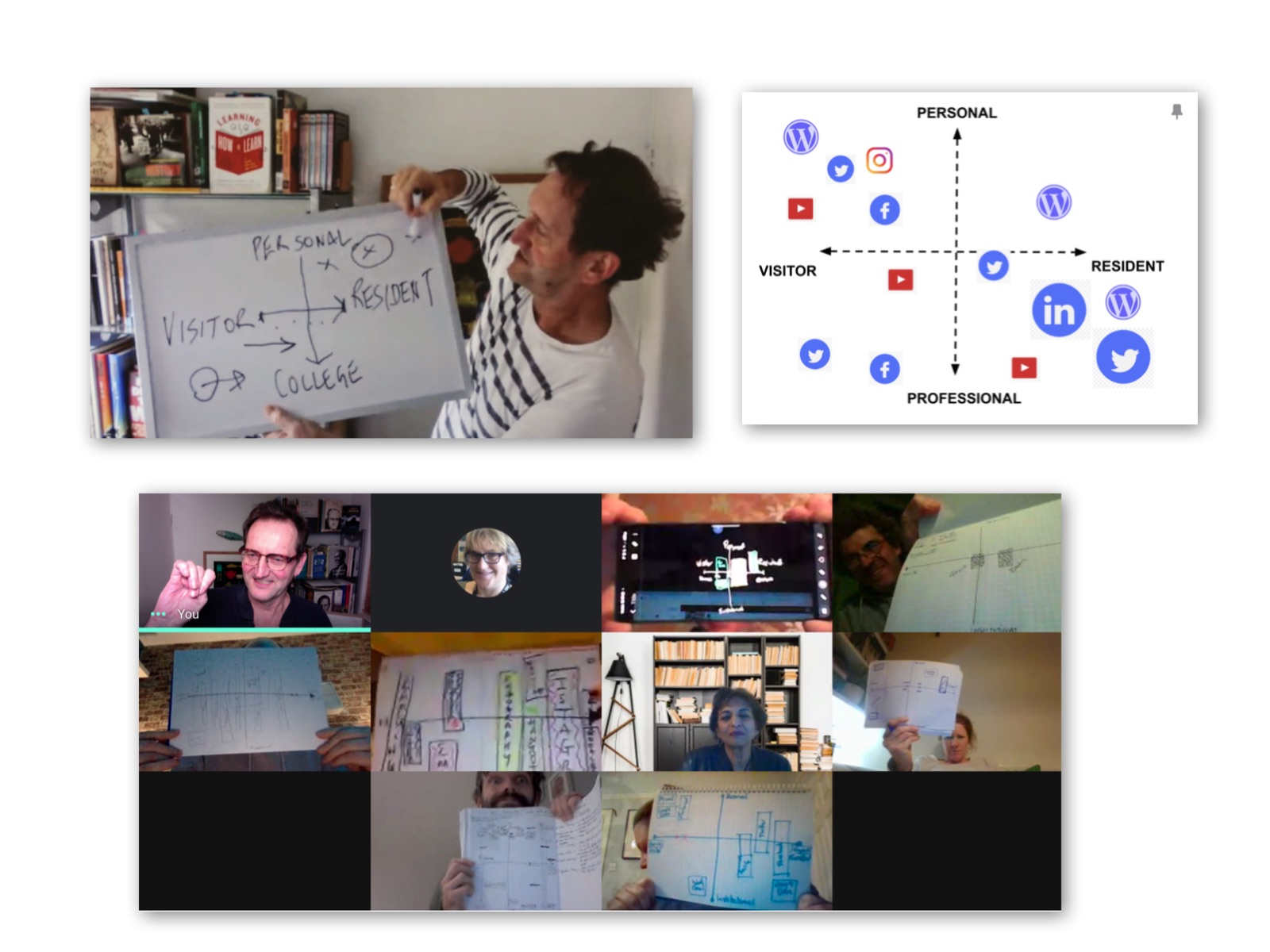
My first year as a PGCE students is coming to a close as I deliver a 150+ page Module 3 document which tracks my learning experiences of the last year. Revisiting so much It staggers me how much I have done and how much I have learnt. I have gone from over-thinking, over-writing and over-working content like a web agency producer putting up a website for an audience, to being a collaborator and facilitator in a class (or remote). We learn together. I know the subject, I theme it, prep-things, know my learning aims and outcomes, trigger responses, get them all involved, say less and do more.
Can stand alone digital do this? At great expense in a gamified environment perhaps, but not when your resources stretch to the Smart TV, some chromebooks and most valuable of all - some marker pens and a whiteboard.
Just as I put my head down after a short, very early in the morning splurge of activity (I have a habit of doing an hour to 90 minutes from around 3:30am most mornings) I had an idea. One of those ideas which says to be either 'business opportunity' or 'story'. Today it is of the business kind.
Can I now develop something from scratch, again, and this time (for the third time), believe I can make it happen and run with it for at least three years to get it on its feet?
It is all about the business relationship between an educational institution and its digital learning team. Do you have a print room, or purchase in those services as required?
Meanwhile, I promise in due course to feed some of the 150 pages of my module 3 in here. To write it I've picked out some jottings from here. But I also keep a 'day diary' - a sheet or a few paragraphs just noting emails in/dealt with, meetings. Also, which proved very useful and feasible during remote teaching is the vast gallery of screenshots I have - these reminded me of the number of Google Meets and Zoom Calls I have taken part in, or led and provides ample evidence of the learning journey I have been on and the learning curves I have travelled.
Despite loathing slides I did a 'death my power point' microteach - you do what others do and fail like them, if all you have ever seen is failing teaching. And then I replaced this with the equally deplorable 'death by mind map' - all text and my workings again. All I wanted to do was a TED lecture style, no slides talk. These days I go for TEDx with a few supporting slides and video, and a great deal of interaction where the students research, think through and share and make their understanding rather than me telling them what is what.
Note to self:
JFV Ed-Tel blog. I kept this for my first two years at GBMET - private mostly, day to day activities and practices.
Day Diary. I call it this but it is a weekly document which can run to 100+ pages where I note down events, emails, link, and add screenshots so that I can back-up my Teflon brain.
Reflections on e-leanring. The external WordPress version of this ... just as Mindbursts.com was before it (and still is)
Google Photos: Weekly sets of screenshots 'dumped' into a monthly gallery.